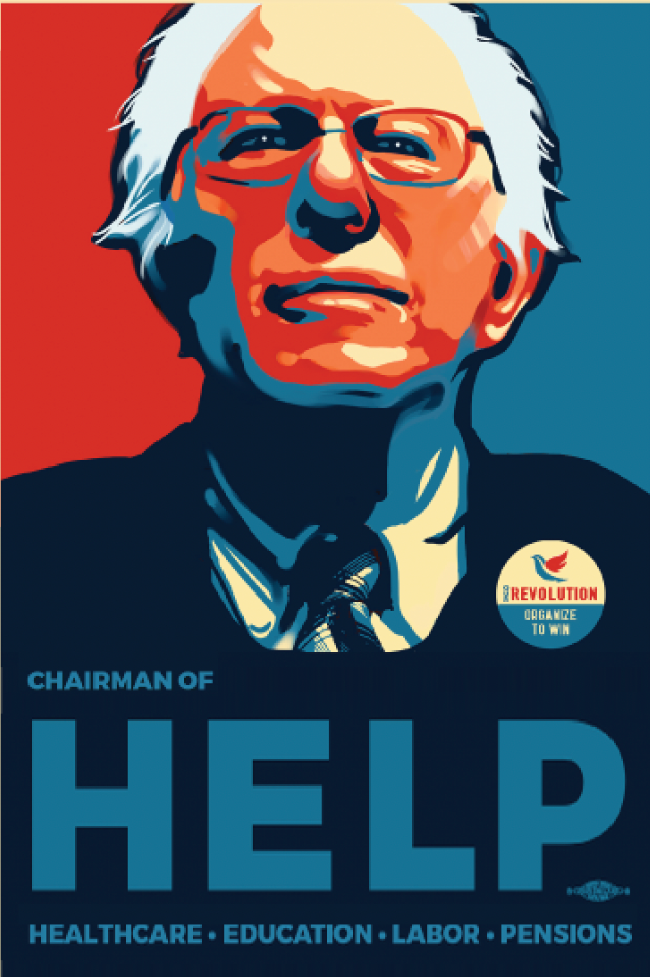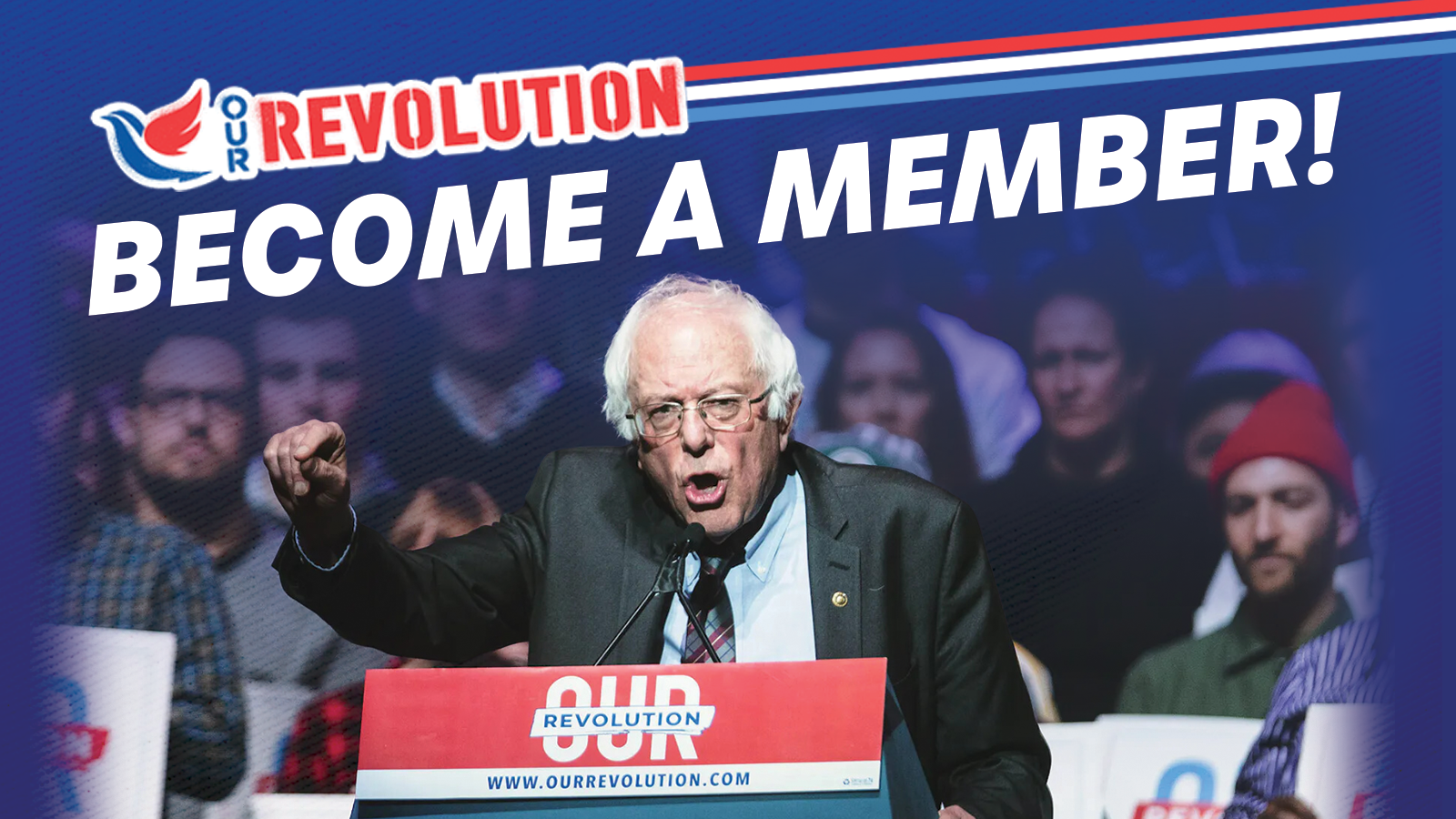
28 April 23
Live on the homepage now!
Reader Supported News
HOW BAD DO YOU WANT FREE SERVICE? — Bad enough to allow your privacy to bought and sold on Wall Street? Bad enough to be led to vote for policies that subvert social justice? Bad enough to empower individuals and interests who profit from human suffering on an immense scale. Notice the difference at Reader Supported News? Help us pay the bills. It’s not so much.
Marc Ash • Founder, Reader Supported News
Sure, I'll make a donation!

Garrison Keillor | Don't Ignore This. It's Important. Read All the Way to the End.
Garrison Keillor, Garrison Keillor's Website
Keillor writes: "Think things through. If you quit exercising because you feel good, you're likely to take a fall and get injured and feel worse."
Think things through. If you quit exercising because you feel good, you’re likely to take a fall and get injured and feel worse. If you fall in love with a married person, you’re likely to have a guilty lover. If you let your life go to pieces, you’ll be too depressed to do anything about it. In the end we live on trust, so don’t look too far ahead, take it one day at a time.
Every day, try to make a little progress; forward motion is good for the soul. Recently, I bought postage stamps online at USPS.com and it made me happy, skipping the line of cranky people waiting for half an hour behind the gentleman who’s sending money orders to Sumatra, Samoa, Szechuan, and the Czech Republic, and wishes to insure each one, and when you finally arrive at the embittered old crone behind the barred window and ask for a sheet of the Railroad Stations stamps, she snaps, “We’re out of that,” and suddenly your life seems meaningless and absurd — no, instead of that, I sat in my kitchen and filled out an extensive form, including a password with a capital letter, a numeral, a punctuation mark, and an Urdu character, and the answers to three security questions — my favorite hobby (writing), my first girlfriend (Corinne Guntzel), and what she saw in me (pure wit and raw sex appeal), and there it is, no need to leave home and run the risk of being killed by an e-bike.
I am in favor of convenience. My cellphone is a loyal friend; when the train is late, when the prescription isn’t ready, I can read news bulletins, text my daughter, call my wife and leave a lusty voice mail.
Convenience is why Jeff Bezos will soon own the solar system. Everything is there at the Amazon website, books, beer, a bag of groceries, a car, a corner lot in Coronado, and my password (FoxNews787m) is easy to remember, and so I give them my business and they’re killing neighborhood retail and so I walk past empty storefronts with “For Rent” signs, and it’s too depressing to go for a walk, so I don’t, and I lose core strength and trip and fall and bang my left knee, and I hobble around with a cane, an object of pity. I have sheets of Railroad Stations stamps but I lost my address book years ago, I only have email addresses. In my loneliness, I fall in love with Juanita Bono the cleaning lady and her husband, Jorge, comes after us and she is weeping (¿Dios mío, cómo pude ser tan estúpida?) and I don’t speak Spanish so I’m lonelier than ever and I go back to Minnesota where it’s snowing in April and I move into my sister’s basement.
Think things through: that’s my point.
We live by trust, as I say, and I discover that all those portfolios of financial information and insurance policies that I, who don’t have an MBA, couldn’t understand one sentence of, but nonetheless signed my name and date and returned in the envelope provided — over the years I surrendered the entirety of my assets to my beloved wife and I do remember her address, which is the one that formerly was mine, and I sit down and I write her a letter in ink, in my own legible hand, “My beloved, I am the victim of a dark conspiracy between Jeff Bezos and Joe Biden and possibly Jimmy Buffett and Joan Baez and John Wilkes Booth and somehow, I don’t know how or why, they’ve robbed me of every last penny but the loss of material possessions has shown me that you and you alone are my all and everything, and before I go to the railroad station and lay my head on the tracks and let the 5:19 pacify my troubled mind, I want you to know that,” and I put a Grand Central Station stamp on it and mailed it and days later my cellphone rang — it was down to 1% power — and it was Jenny, telling me to come home, all was forgiven.
Which is why I’m launching this GoFundMe campaign. If you could donate $20 to help pay for my reunion with my beloved, I’ll give you a “Think Things Through” T-shirt. I can take cold cash, credit cards, PayPal, or a pound and a half of marijuana. Thank you for listening. Your generosity has restored my faith in humankind.
READ MORE
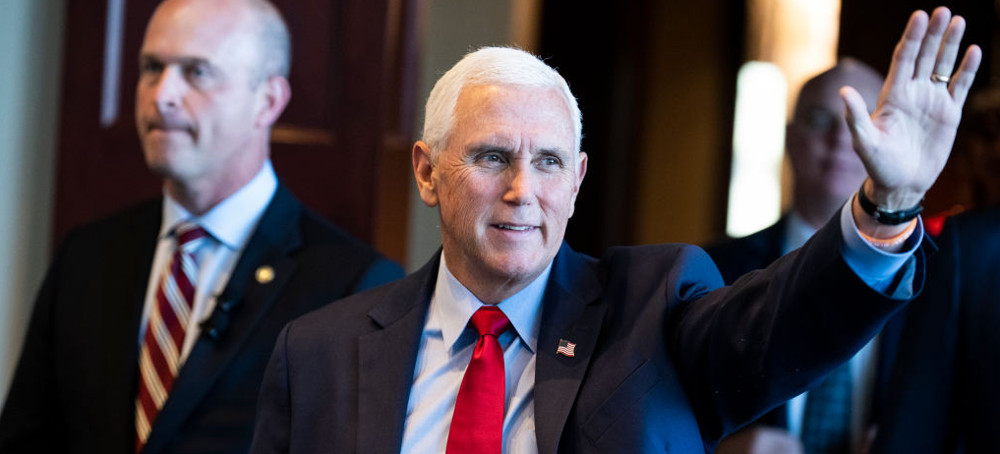 Former Vice President Mike Pence at a Heritage Foundation event in October 2022. (photo: Tom Williams/CQ-Roll Call)
Former Vice President Mike Pence at a Heritage Foundation event in October 2022. (photo: Tom Williams/CQ-Roll Call)
Mike Pence Testifies Before Special Counsel's 2020 Election Grand Jury
Katherine Faulders, John Santucci, Alexander Mallin, Mike Levine, Laura Romero and Tia Humphries, ABC News
Excerpt: "The former vice president had tried to fight a subpoena in the investigation."
The former vice president had tried to fight a subpoena in the investigation.
Former Vice President Mike Pence appeared Thursday before a grand jury investigating former President Donald Trump's role and efforts to overturn the 2020 election, sources familiar with the matter told ABC News.
Pence was inside the courthouse in Washington for more than seven hours and his vehicle was later seen leaving by ABC News.
A spokesperson for special counsel Jack Smith declined to comment.
He was initially subpoenaed by Smith in February for documents and testimony related to the failed attempt by Trump and his allies to overturn the 2020 election. The subpoena came after months of negotiations between federal prosecutors and Pence's legal team.
Trump unsuccessfully sought to stop Pence's testimony, including by asserting a claim of executive privilege that was rejected late last month by the chief judge for the D.C. district court, James Boasberg.
Boasberg ordered Pence to testify before the grand jury and to provide records to Smith and, according to sources, Boasberg ruled that Pence should have to provide answers to Smith on any questions that implicate any illegal acts on Trump's part.
The judge, however, did narrowly uphold parts of a separate legal challenge brought by Pence himself, who argued he should be shielded from having to testify on certain aspects related to his role as president of the Senate overseeing the certification of the 2020 election on Jan. 6, 2021.
A federal appeals panel on Wednesday rejected a further effort from Trump's legal team to prevent Pence from testifying.
Pence said earlier this month that he would not appeal the D.C. district court ruling and would comply with the grand jury subpoena.
READ MORE
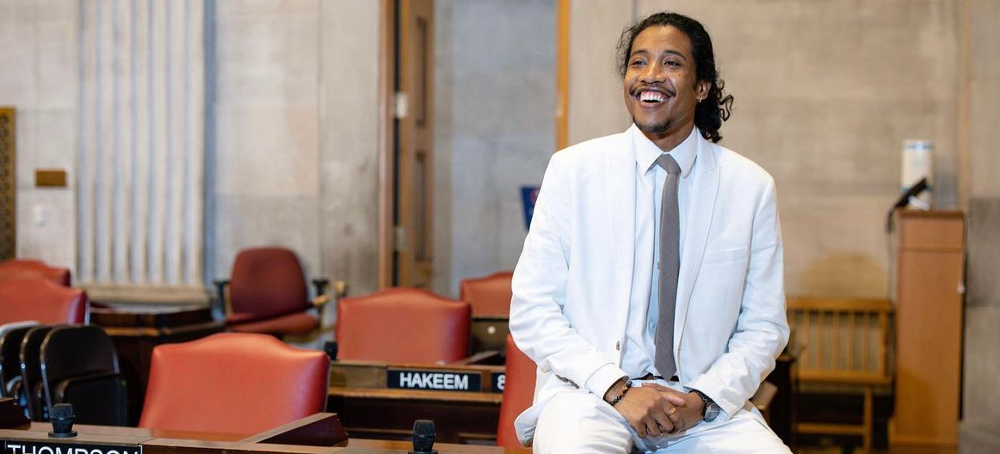 'There is a rising tide of fascism and authoritarianism that's taken hold of our nation.' (photo: AP)
'There is a rising tide of fascism and authoritarianism that's taken hold of our nation.' (photo: AP)
"Rising Tide of Fascism": Tennessee Rep. Justin Jones Warns of GOP's Growing Embrace of Authoritarianism
Democracy Now!
Excerpt: "Earlier this month, the largely white Tennessee House of Representatives, with its heavily gerrymandered Republican supermajority, expelled two members, Justin Jones and Justin Pearson, the two youngest Black representatives in the House."
Earlier this month, the largely white Tennessee House of Representatives, with its heavily gerrymandered Republican supermajority, expelled two members, Justin Jones and Justin Pearson, the two youngest Black representatives in the House. They stood accused of breaching House “decorum” for nonviolently protesting the chamber’s inaction on gun violence in the wake of a mass school shooting in Nashville. Days after their expulsion, both Jones and Pearson were temporarily reinstated to their seats by local authorities. Justin Jones joins us again on Democracy Now! and says there is a “rising tide of fascism and authoritarianism that’s taken hold of our nation,” linking the expulsions of state lawmakers to the January 6 attack on Congress.
Transcript
This is a rush transcript. Copy may not be in its final form.
AMY GOODMAN: This is Democracy Now! I’m Amy Goodman.
From Montana to Tennessee, we’re speaking to lawmakers who have been expelled or silenced by their Republican colleagues. Joining us now in Washington, D.C., is Justin Jones. Earlier this month, the largely white Tennessee House of Representatives, with its heavily gerrymandered Republican supermajority, expelled Justin Jones and Justin Pearson, the two youngest Black representatives in the Tennessee House. They stood accused of breaching House decorum for nonviolently protesting the chamber’s inaction on gun violence in the wake of the March 27th mass school shooting at The Covenant School in Nashville, where three 9-year-olds and three adults were killed. Days after being expelled, both Jones and Pearson were temporarily reinstated to their seats by local authorities. Earlier this week, the two Justins, along with Gloria Johnson, a white lawmaker who narrowly escaped being expelled, met with President Biden at the White House.
PRESIDENT JOE BIDEN: What the Republican Legislature did was shocking, it was undemocratic, and it was without any precedent. But you turned it around very quickly. And, look, we’ve passed the most significant gun laws that have been passed in 30 years, but there’s more to do. … Now, you understand exactly what it’s like. It’s just tragic to see what’s happening in your state, in particular, in your city, but also across the country. And, you know, nothing is guaranteed about democracy. Every generation has to fight for it. And you all are doing just that.
AMY GOODMAN: After their meeting with the president, state Representative Justin Jones spoke outside the White House.
REP. JUSTIN JONES: We lifted this issue above the partisan divide, that this is not left or right, but we talked to the president about how this is a moral issue, an issue of conscience, an issue in the South, where we are trying to build a multiracial democracy and challenge these extreme forces that rather than passing an assault weapons ban, they assaulted our democracy, as we saw when we were expelled from the state Legislature. And so we talked to the president and vice president about why it’s so critical for us to continue to lift up these movements in the South, to continue to lift up this multiracial movement of reconstruction that we’re experiencing right now. …
We come here to say that the South will rise anew. We represent a new South, a new South that is rising, and that if we can transform the South, we can transform this nation. If we can get commonsense gun laws passed in the South, we can get them passed in this nation. And so we hope that the national media will lift up what’s happening in the South, because our people are pushing forward a new vision. And I think it’s going to be a point where we are on the right side of history, and those who stand against us are not.
AMY GOODMAN: Well, Tennessee lawmaker Justin Jones is still in Washington, D.C., and is joining us from there now.
We last spoke to you in Nashville, the city that you represent — actually still represent, even though you were expelled. Can you talk, Justin Jones — it’s so great to have you back with us — about what it meant to be reinstated, and then what it meant to meet with President Biden, with Bernie Sanders, with the Black Caucus and others, and what you’re calling for now?
REP. JUSTIN JONES: Yes. Well, it’s so good to be here again, Amy.
And what it means is that the movement continues, is that, as we saw in Tennessee, Tennessee has set a very dangerous precedent for the nation, with what happened to my friend here, Representative Zephyr, in Montana, what’s going on in Nebraska, and what’s going to continue to happen as we see this rising tide of fascism and authoritarianism that’s taken hold of our nation. And we see this weaponization of decorum to silence dissent, to silence voices that make people uncomfortable. And that’s really what they’re doing, is silencing any voice of divergence from their dominant narrative.
And so, you know, to be here in D.C., we’re continuing to lift up this struggle, to nationalize what is going on, because it’s not just going to impact us in Tennessee and in Montana, but it’s really going to impact our nation, that an attack on one of us is an attack on all of us. And so, you know, we continue to push the White House. And I’ve been grateful to meet with many members here in the capital to let them know that from our statehouses to the U.S. Capitol, we are facing some very dangerous trends in our democracy, I mean, connecting what happened to us to January 6, which was an attempt to stop an election, to stop democracy. And so we have to stand together, and we must show that we are not going to be divided and conquered, that we’re united in our struggle for multiracial democracy and uplifting voices that have been often pushed to the margins.
AMY GOODMAN: Justin Jones, you were elected to be state representative in November, but before that you were well known in Nashville, a Black Lives Matter activist. In fact, you had taken on the House speaker before. You’re now calling for Cameron Sexton’s resignation. But you had pushed, and successfully pushed, for the removal of the bust of Nathan Bedford Forrest from the state Capitol Rotunda — Nathan Bedford Forrest, the first grand dragon of the Ku Klux Klan, the Ku Klux Klan born in Tennessee. You ultimately won your battle, but Cameron Sexton voted against removing the founding grand wizard of the Ku Klux Klan’s bust from the state Capitol. Is that right? Were you able to hear that question, Justin?
REP. JUSTIN JONES: I just missed the last part.
AMY GOODMAN: Oh, I was just asking — you won the removal of the bust of the founding grand wizard of the Ku Klux Klan, Nathan Bedford Forrest, from the state Capitol Rotunda. The House speaker, whose resignation you continue to call for, voted against removing his bust, Ku Klux Klan born in Tennessee. Is that right?
REP. JUSTIN JONES: That’s correct. And what we’re seeing in Tennessee is this battle of us representing a new South, you know, the South that does not worship symbols to white supremacy and the Confederacy and racial terror. But we were trying to represent a new South that represents multiracial democracy and human rights, a South that affirms human dignity across race, across sexuality, across immigration status. You know, we want to say that — you know, the Southern segregationists had a saying that the South will rise again. We stand as a new generation to say that the South will rise anew and that the South is a frontline in this battle for democracy and in this battle against white supremacy and transphobia and homophobia and xenophobia and misogyny and economic exploitation. We represent this new voice.
And that’s really what they were trying to expel, Amy, was not just us as individual lawmakers but what we represent and this vision of the future that they’re so fearful of, because it means one in which all of our voices are heard and all of our people are treated with respect and protected, and not just the voices of a small white power structure, of men of a particular religion and particular economic status who have dominated our politics for so long.
AMY GOODMAN: Can you talk about the state Legislature trying to give immunity to the gun manufacturers, this vote right after the mass shooting in Nashville — the city you represent — that killed three 9-year-olds and three adults?
REP. JUSTIN JONES: I mean, it is immoral that the only gun law that we passed in the light of a shooting that took the lives of three 9-year-olds and three adults — and was not the first mass shooting in Nashville, as well. We had the shooting five years ago last week at the Waffle House in Nashville. And so, what they decided to do was say, “Let’s not protect kids,” as we’ve been asking, “but let’s protect firearms manufacturers from lawsuits.” This is how immoral it is, that we’re dealing with people who care more about the profits of the gun industry than they do the lives of our children, than they do the safety of our community. And it’s immoral, and it shows where their allegiance is to, to these special interests. It shows the corruption of money in our political system, that that’s the first action they take in light of a mass shooting, was to pass that law, and also to expel the two youngest Black lawmakers. This is the way that they are moving.
And so, it’s not democracy. It is a mobocracy. It is terror for our communities. And it is insulting to the victims of this mass shooting and their families that that is the step forward that they’re taking, and also to arm teachers, as well. That was the other proposal they had. And it’s just — it is so hurtful for our people, who are grieving still and demanding that we pass commonsense gun laws. And the majority of Tennesseans across the political spectrum support red flag laws, a ban on assault weapons, universal background checks and safe storage. That’s what we should be passing.
AMY GOODMAN: Before we bring Representative Zephyr back into the conversation, I wanted to ask you now about what’s happening with you and Justin Pearson. You’re back in as state representatives, defying the Republican supermajority. But you now have to go through an election, both in Nashville and in Memphis, the two of you, to — because you were expelled? How much does this cost? When is this going to happen?
REP. JUSTIN JONES: Yeah, so, we have two elections. We have a primary in a month, and we have a general in August. And it’s all being, you know, at the expense of the taxpayer to run again. And I know a Republican just announced that they’re running against me. And so we’re going to be pushing, and we’re going to be running an active campaign, because we know that this is not just about us, but it’s a referendum on democracy, Amy. And that’s what we’re going to be fighting for and pushing for, is that their attempt to expel us was an attempt to make a spectacle of authoritarianism, that if you dare dissent, if you dare challenge the dominant power structure, this is what will happen to you.
What I also want to say, too, is that though Representative Pearson and myself are back, we’re still not being allowed to speak on the House floor. We’re being shut down on the House floor. We still have not been given committees again, so they’ve stripped our committees from us. And so they’re doing everything they can to make us feel like second-class members, though our communities sent us back there, after being expelled, to represent them, unanimously in the Memphis Council and in the Nashville City Council. And so, it is extreme, what’s going on. You know, we’re still unwelcome in the People’s House.
But like I told somebody, we’re not there to make friends with them. These are our colleagues. We’re there to represent the voices of our constituents, you know, some of the most diverse districts in the state of Tennessee, who deserve to be heard. And every time they silence us, they silence our constituents. And that’s why we must fight so hard against these authoritarians and these fascists who have taken hold of our state government.
READ MORE
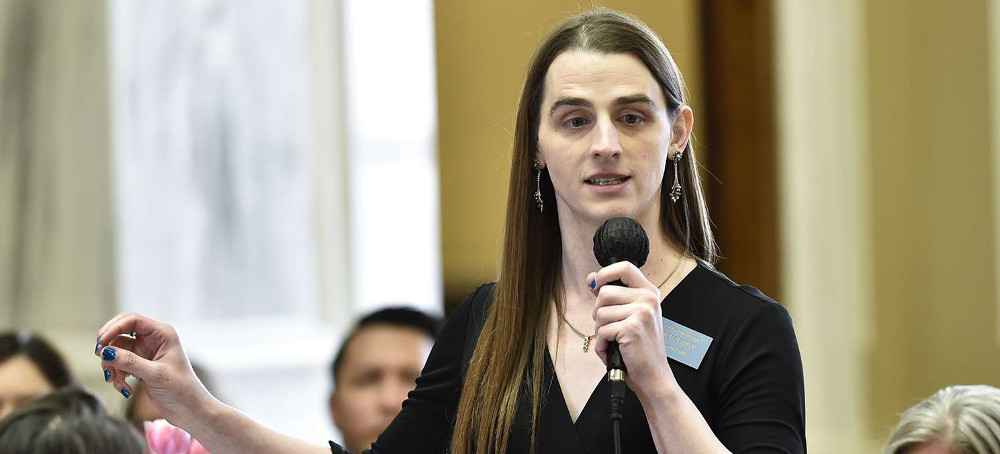 The Montana House of Representatives has voted to block Representative Zooey Zephyr from the house floor for the remainder of the legislative session. (photo: Thom Bridge/AP)
The Montana House of Representatives has voted to block Representative Zooey Zephyr from the house floor for the remainder of the legislative session. (photo: Thom Bridge/AP)
Republicans Just Banned Montana's First Trans Legislator From the House Floor
Paul Blest, VICE
Blest writes: "Rep. Zooey Zephyr had been banned from speaking for nearly a week, after saying the GOP would have 'blood on their hands' for a ban on transition care for minors."
Rep. Zooey Zephyr had been banned from speaking for nearly a week, after saying the GOP would have “blood on their hands” for a ban on transition care for minors.
Republicans in Montana’s House of Representatives voted Wednesday to punish the state’s first transgender state representative, Zooey Zephyr, by barring her from speaking on the House floor or voting in person for the rest of the legislative session.
On a party-line vote, Republicans, who hold a supermajority, to ban Zephyr from the House floor, gallery, and anteroom, allowing her only to participate in voting remotely for the rest of the session, of which there are eight days remaining.
Zephyr said last week that Republicans will have “blood on their hands” for banning gender-affirming medical care for minors. Republicans demanded she apologize, and legislative leaders have since refused to allow her to participate in floor debates until she does.
The attempt by Republican leaders to silence Zephyr, a Missoula Democrat, has sparked protests, including one on Monday which briefly halted floor proceedings; riot cops arrested seven protesters and charged them with criminal trespassing. During the protest, as protesters chanted, “let her speak,” Zephyr held her microphone in the air.
On Tuesday, Republican leaders including Speaker of the House Matt Regier announced they would bring a motion to the floor to potentially discipline Zephyr, up to and including expulsion from the chamber.
On Wednesday, as Montanans were banned from watching the proceedings from the House gallery, Republicans accused Zephyr of encouraging the Monday protests and putting the legislators and their staff “in danger.”
Speaking on the House floor for the first time in nearly a week on Wednesday, Zephyr said she was “not speaking hyperbolically” when she made the comment about blood on Republicans’ hands.
“I rose up in defense of my community that day, speaking to harms that these bills bring and that I have first hand experience knowing about. I have friends that have taken their lives,” Zephyr said. “If you use decorum to silence people who hold you accountable, then… all you are doing is using decorum as a tool of oppression.”
“I’m not sure what comes next here but I will say that I will do what I have always done,” Zephyr said. “I will rise in support of my community. I will take the hard and moral choice.”
Republicans who spoke in support of the motion effectively blamed Zephyr for the protest. Republican Rep. David Bedey said that Zephyr “actively participated in disrupting the lawful activities of this body,” and had “other options” such as leaving or trying to calm the crowd, but “chose neither.”
“The representative in question did indeed support and arguably incite the disruptive antics of the protesters gathered in the gallery,” Bedey said. Another Republican, Rep. Terry Moore, said that banning a duly elected legislator from the premises was “fair and reasonable, given the circumstances.”
But Zephyr’s Democratic colleagues decried attempts by Republicans to portray Zephyr’s behvaior as worthy of expulsion, alleging that GOP leaders have ignored far worse. Rep. SJ Howell, a Democrat from Missoula who identifies as nonbinary, spoke in opposition to the motion and said that “there are people in this building who have said things about me in the press and online that I find deeply offensive.”
“It is deeply unsurprising to me that the community responded on Monday the way that they did. because it's not just that one of our own has been silenced,” Howell said. “It happened after a session of bills that only impacted some of us, and struggling for equal treatment under the law.”
The move to censure Zephyr and bar her from legislative proceedings echoed measures taken by Tennessee Republicans earlier this month to expel two young Black lawmakers, Reps. Justin Jones and Justin Pearson, for protesting for gun reform after the Covenant School shooting in Nashville.
Both Jones and Pearson were quickly re-appointed to the seats by their county legislatures and have said they’ll run in special elections to stay in office. They’ve since become some of the most recognizable state legislators in the entire country, and met with President Joe Biden at the White House on Monday.
In a statement about the censure of Zephyr, GLAAD chief executive officer and president Sarah Kate Ellis referenced the expulsions in Tennessee, saying that the censure in Montana was part of a “disturbing trend across the country” of threats to silence legislators who stand up for marginalised communities.
“The silencing and threats of censure and expulsion against Rep. Zephyr for speaking up in support of transgender Montanans is an attack on our nation’s democratic ideals and free speech values,” Ellis said. “It’s an assault on democracy to suppress the already marginalized and under-represented voices of LGBTQ people and people of color, and the lawmakers who were duly elected to represent them.”
READ MORE
 (photo: David Paul Morris/Bloomberg)
(photo: David Paul Morris/Bloomberg)
Workers Just Beat Amazon in a Union Battle, but the War Is Far From Over
Rani Molla, Vox
Molla writes: "What happens next depends on Amazon, the workers, and the interpretation of outdated US labor law."
What happens next depends on Amazon, the workers, and the interpretation of outdated US labor law.
Amazon delivery drivers unionized and negotiated their first contract with the Teamsters union last week — a huge feat for workers at a company that has used its enormous size and strength to fight off worker organizing.
But that victory is a bit complicated.
The 84 California delivery drivers and dispatchers who unionized appear at first glance to be Amazon employees. They wear Amazon vests and drive Amazon-branded vehicles, have schedules dictated by Amazon, and can even be fired by Amazon. But they’re technically employed by Battle Tested Strategies (BTS), one of approximately 3,000 delivery contract companies that make up Amazon’s extensive delivery network. BTS voluntarily recognized the union after a majority of workers signed union authorization cards and negotiated the union contract.
Amazon has told Vox that its contract with BTS, which exclusively delivers for Amazon, was terminated “well before” workers notified the tech giant Monday, but that the contract hasn’t expired yet. The union said that the delivery people are still working for Amazon and that the contract goes through October, when it typically would auto-renew.
What happens next depends on Amazon, the workers, and the interpretation of outdated US labor law.
As American corporations increasingly rely on contract workers, existing legislation, written for more straightforward employee-employer relationships, puts these workers in a gray area where their rights can be unclear. Even for traditional employees, like those at Starbucks, corporate pushback against unions has made organizing a Herculean task. That means even small wins, like that of the delivery contractor against a giant tech behemoth, are impressive and can provide a pathway forward for how others might unionize in this day and age.
Unionizing on a small scale looks to be one of the many strategies unions like the Teamsters are using to try and gain footing in their uphill battles with giant corporations. It can be easier for unions to organize with individual contract companies, which might not have the explicit anti-union stance and tactics of Amazon. Contractors at other tech companies — like at Google, where a group of 50 YouTube contractors voted to unionize this week — will be paying special attention to what happens with this Amazon delivery union.
At the crux of the delivery driver issue is whether Amazon controls enough of what the workers do to be considered a joint employer.
“If Amazon is able to get away with ignoring the workers’ decision and hiding behind the subcontractor relationships, then I’m afraid we’ll have yet another story of the failure of American labor law,” said Benjamin Sachs, a labor professor at Harvard Law School. “If this leads to a recognition that these drivers are Amazon employees, joint employees, then this could be massively important.”
One element of note: These workers organized in California, which has a lower bar for who is considered an employee, and by extension, who enjoys union protections. For workers there to be considered independent contractors, they must satisfy three conditions: The worker must be free from the company’s “control and direction,” perform work that’s outside the company’s usual business, and be engaged in an “independently established trade.”
Another element that the National Labor Relations Board will likely have to decide is whether Amazon terminated the contract with BTS in order to avoid working with a union, something that would be illegal if they were considered employees. Amazon mentioned that the company had a “track record of failing to perform” but didn’t respond to questions about when exactly it told BTS it was terminating the contract and whether the e-commerce company had been aware of union organizing before then. BTS didn’t respond to an interview request.
Randy Korgan, the Amazon division director for the Teamsters, said the delivery drivers had been involved in “concerted activity” for the last year and a half, in which they communicated with their contractor and Amazon regarding their issues about heat — they frequently deliver packages in near 100-degree weather — and vehicle safety.
The latest Teamsters unionizing efforts appear to be a smart tactic: Rather than facing Amazon and its anti-union resources head-on, organizing smaller subcontracting firms might be a less onerous strategy, according to Robert Bruno, a labor professor and director of the labor studies program at the University of Illinois, Urbana-Champaign.
“It’s an easier way to get in the door, an easier way to start to represent some folks,” Bruno said.
Amazon has directed much of its anti-union efforts — including establishing relationships with policymakers and burnishing its image with union allies through efforts like employing formerly incarcerated people — against the Teamsters and particularly in Southern California, which is a key logistics hub for the company. The Teamsters could leverage its union win and contract there, which includes things like better wages and addressing safety concerns, to convince other contractors and employees to unionize.
This is not the first union victory at Amazon, but it’s the furthest along. Amazon workers at a Staten Island warehouse voted to form an independent union last year but are still fighting to negotiate a contract. Another union vote at a warehouse in Alabama failed.
Teamsters previously unionized Amazon delivery drivers in Michigan in 2017, but they never achieved a union contract. The union alleged that their subcontracting company and Amazon illegally fired workers in retaliation for unionizing, but Amazon was able to escape blame by saying it wasn’t their employer, and the subcontracting company closed up shop in the state shortly after.
“Workers are much more active today in their pursuit to exercise their rights,” Korgan said.
The union is also more prepared, he said, having passed a resolution in 2021 in which it created a division aimed specifically at building worker power at Amazon. Teamsters already represent UPS drivers, who deliver most of the other packages not delivered by Amazon’s network, so they see organizing the rest of its drivers as squarely in their wheelhouse. Korgan says there are other contracting firms like BTS that are “sympathetic” to their workers’ union efforts but many fear retaliation from Amazon.
While the BTS union and contract are certainly important, especially to the lives and livelihoods of those who work there, their greater importance might lie in symbolism.
“People were saying, ‘You can’t organize Amazon, nobody else has been able to organize it,’” Kate Bronfenbrenner, director of labor education research at Cornell University’s School of Industrial and Labor Relations, told Vox. “Now the Teamsters could say, ‘Well, we’re doing it.’ I think that will help give momentum to the movement to organize in the logistics industry.”
READ MORE
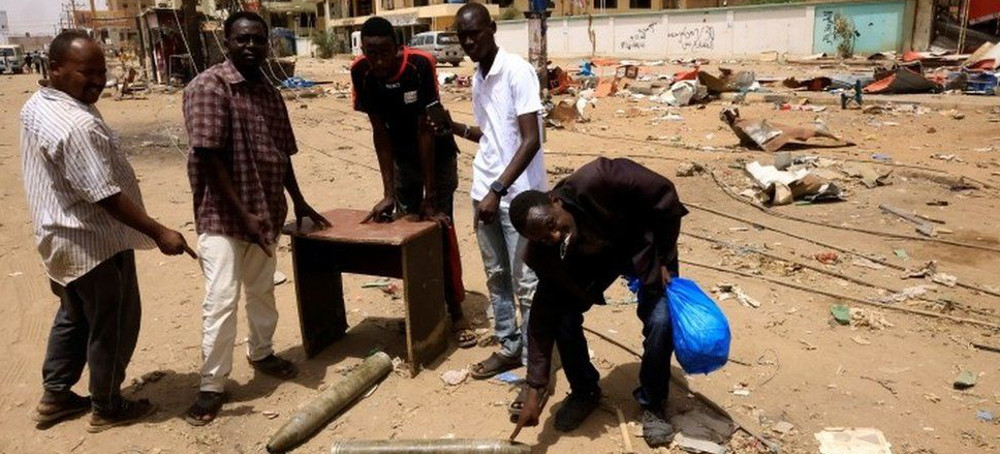 People have used the relative lull in fighting to go outside their homes (photo: Reuters)
People have used the relative lull in fighting to go outside their homes (photo: Reuters)
Sudan Crisis: Ceasefire Extended but Fighting Continues
Robert Greenall, BBC
Greenall writes: "There are continuing reports of heavy fighting in the capital Khartoum."
Rival factions of Sudan's military agreed to renew a three-day ceasefire, shortly before it was due to expire.
The extension - for another 72 hours - follows intensive diplomatic efforts by neighbouring countries, as well as the US, UK and UN.
But there are continuing reports of heavy fighting in the capital Khartoum.
The previous truce allowed thousands of people to attempt to flee to safety, while dozens of countries have tried to evacuate their citizens.
Almost two weeks of fighting between the army and a rival paramilitary group have left hundreds dead.
The ceasefire had been expected to end at midnight local time (22:00 GMT on Thursday).
Early on Thursday evening the Sudanese regular army agreed to an extension, and its rival the paramilitary Rapid Support Forces (RSF) followed suit hours later.
South Sudan has offered to host peace talks, and the army has agreed to send representatives to the talks.
Despite the bitter past and years of conflict that led to South Sudan's separating from Sudan in 2011, the two nations now enjoy cordial relations.
US Secretary of State Antony Blinken said Washington was "very actively working" to extend the truce, adding that while imperfect it had reduced violence.
But White House spokeswoman Karine Jean-Pierre later said the situation could worsen at any moment.
Abiy Ahmed, prime minister of neighbouring Ethiopia where the Africa Union is headquartered, tweeted that he had called up both of the rival generals to urge them to settle their differences amicably.
On Friday, a Turkish military plane on an evacuation mission was shot at as it was landing at an airport outside Khartoum. No-one was injured and the RSF denied accusations by the army that it was involved.
Meanwhile the RSF and eyewitnesses said the army had been pounding its positions in Khartoum.
The foreign minister in the former civilian government, Maryam al-Sadiq al-Mahdi, told the BBC from her home in Khartoum that despite the ceasefire, civilians were still living in fear.
"What they call a truce has nothing to do with what is happening," she told BBC Radio Four's World Tonight programme. "The bombardment by the aeroplanes is taking place almost all day and night."
Fighting has also been reported in the western Darfur region and other provinces.
At least 512 people have been killed in the fighting and almost 4,200 injured, although the real number of deaths could be much higher.
The World Health Organization said it expected there to be "many more" deaths due to outbreaks of disease and a lack of services.
Health officials say most hospitals in conflict areas are not functioning, and more than 60% of health facilities in Khartoum are inactive.
David Miliband, the head of the International Rescue Committee and former British foreign secretary, said the international community was in danger of neglecting the wider crisis in Sudan in the rush to evacuate foreign nationals.
"The fact that for the last 10 days pretty much all the media coverage and the vast bulk of political attention has been on getting out thousands of people and not on the need to tend to millions of people really sticks in the gullet," he told the BBC.
"Of course the lives of the thousands who need to evacuate are important, but what about the 45 million who are left?
"Sudan's population has 15 million people in humanitarian need and I think part of our call today as the International Rescue Committee is to say let's not fall into that trap of thinking that once thousands are evacuated the problem is solved."
An army statement quoted by Reuters new agency said it had taken control of most of Sudan's regions but "the situation is a bit complicated in some parts of the capital".
It has not been possible for the BBC to verify the army's claims.
Foreign nations, including the UK, have been urging their citizens to leave the country as soon as possible.
Speaking on Thursday evening, Ms Jean-Pierre urged Americans to depart within the next 24 hours.
Evacuations are continuing, but many foreigners are still stuck in Sudan. Some have struggled to get to the airstrip used for evacuations.
Local civilians are continuing to flee the capital, where there are problems with supplies of food, water and fuel.
The number of Sudanese fleeing the fighting in Darfur have outnumbered Chadian residents in the village of Koufroun on the other side of the border, the UN children's charity says.
Chad would not be able to sustain the influx of refugees if the situation worsened in Sudan, Unicef's Donaig Le Du told BBC Newsday.
The fighting broke out on 15 April as the result of a bitter power struggle between the regular army and RSF.
Army commander Gen Abdel Fattah al-Burhan and RSF chief Gen Mohamed Hamdan Dagalo, better known as Hemedti, disagree about the country's proposed move to civilian rule, and in particular about the timeframe of the 100,000 strong RSF's inclusion into the army.
Both factions fear losing power in Sudan because on both sides there are men who could end up at the International Criminal Court for war crimes committed in Darfur almost 20 years ago.
READ MORE
 Ali Hussein Jaloud was diagnosed with leukemia at 15. (photo: Guardian UK)
Ali Hussein Jaloud was diagnosed with leukemia at 15. (photo: Guardian UK)
Ali Died Days Before He Could Challenge BP's CEO on the Dangers of Gas Flaring. Don't Let His Death Be in Vain
Jess Kelly, Guardian UK
Kelly writes: "The 21-year-old Iraqi, who lived by a smoke-choked oilfield, died of cancer before he got to address the fossil fuel giant's shareholders. His message must be heard."
The 21-year-old Iraqi, who lived by a smoke-choked oilfield, died of cancer before he got to address the fossil fuel giant’s shareholders. His message must be heard
Ali Hussein Jaloud, a 21-year-old Iraqi who lives next to one of BP’s biggest oilfields, was meant to ask a question at the company’s annual shareholder meeting today. He was going to challenge the CEO on why his company continues to poison his neighbourhood with cancer-causing pollution. But, just a few days ago, Ali died of a form of leukaemia that has been linked to chemicals released by the burning of fossil fuels. His grieving father will ask why BP did not use its vast profits to help save his life.
Over the past two years, my fellow investigator Owen Pinnell and I got to know Ali while making a documentary for BBC News Arabic, Under Poisoned Skies, which revealed the deadly impact of gas flaring in southern Iraq, including at BP’s Rumaila oilfield where Ali lives, surrounded by oil company-patrolled checkpoints. We also found out that Rumaila has more gas flaring than any other oilfield in the world.
Routine gas flaring is a wasteful and avoidable practice used by oil companies to burn off the natural gas expelled during drilling. The process releases both greenhouse gases and dangerous air pollution. The gas could be captured instead and used to power people’s homes, saving them from dangerous emissions. But for more than a decade, BP and its partners have failed to build the necessary infrastructure. Since the Iraq war, BP has extracted oil worth £15.4bn from the country. BP said it was “extremely concerned” by the issues raised by our film (and in February said it was working to reduce flaring and emissions at Rumaila) but announced record profits from the oilfield in the year we launched the film.
A keen footballer, Ali was diagnosed with leukaemia at 15. He had to drop out of school and his football team, and embark on two painful years of treatment. His family had to sell their furniture and take donations from their community to pay for it. “Sometimes I wished I would die so that I could stop torturing my parents,” he told us. But, miraculously, Ali survived. He was too old to return to school, so he set up a small mobile phone shop.
Ali had been told by doctors that pollution had probably caused his cancer, and he quietly started advocating for a greener Iraq, one where children could breathe clean air. In his last Instagram post, just days before his death, Ali called for the oil companies to stop routine gas flaring and “save the youth of the country from kidney failure and cancer”.
Rumaila, the town where Ali was living, is heavily guarded and journalists are denied access, so we asked Ali to record video diaries documenting his daily life. In the first scene of our film, he opens his front gate to reveal a towering black cloud of smoke, just a few hundred metres away, beneath which children play hopscotch. In Iraq, the law states that gas flaring shouldn’t be closer than 10km (6 miles) from people’s homes.
“These children are happily playing, they’re not aware of the poison that is coursing through their veins,” he says over the video. In the next shot, he loads his cute five-year-old nephew, Abyas, on to the front of his motorbike and they scoot off, passing the primary school, which is also engulfed in thick black smoke, before arriving at a spot by the canal where gas flares punctuate the skyline in every direction.
When we showed that footage to David Boyd, the UN’s special rapporteur on human rights and the environment, he called it “a textbook example of a modern sacrifice zone, where profit is put above human life and the environment”.
Ali helped us uncover high levels of the cancer-causing chemical, benzene, produced by gas flaring, in the air and bodies of children living in his community. Benzene is known to cause acute myeloid leukaemia (AML) – the cancer from which Ali and many other children we met were suffering. After our documentary appeared, the Iraqi government acknowledged, for the first time, the link between the oil industry’s pollution and the local population’s health problems.
In December 2022, we found out Ali’s leukaemia had returned. His doctor in Iraq said that his only option was palliative care. But his father, who described Ali as his best friend, refused to accept this. He found a doctor at Columbia University who said that Ali could be eligible for experimental T-cell therapy. A supporter of the film, Callum Grieve, began a fundraising campaign to try to raise the £70,000 needed to send him to India. The donations were steady, but relied on the generosity of ordinary people with only small sums to give.
I began to notice in our calls with Ali that his face looked bloated, and his cheekbones hidden because of the effects of steroids. But I had no idea we would lose him so soon. On Friday 21 April, the first night of Eid, we received the terrible news that Ali had died. We had already lost to cancer three of the children we got to know while making this film.
A Guardian investigation found that nine million people a year die as a result of air pollution. Getting to know Ali helped to make that feel like much more than a statistic.
Despite the barren and apocalyptic landscape Ali grew up in, he was a keen gardener. He used to send us videos of him watering the tiny, sparse patch in his front yard where he grew a handful of small palms and some unusual species like the “bambara” or white mulberry tree. When we showed him pictures of the countryside in England, he marvelled at the greenery and the clear skies. It contrasted so starkly with the constantly orange and acrid sky he was used to.
Companies like BP are still breaking Iraq’s law by gas flaring illegally close to people’s homes. If you are looking down on us now, Ali, please know that your death will not be in vain. Britain’s biggest pension fund, Nest, and other investors are launching a shareholder rebellion against BP for rolling back on its climate targets. They told us their actions were partly inspired by our film. And this story could help secure justice for the thousands of lives put at risk by pollution from fossil fuel companies.
READ MORE
Contribute to RSN
Follow us on facebook and twitter!
Update My Monthly Donation
PO Box 2043 / Citrus Heights, CA 95611


